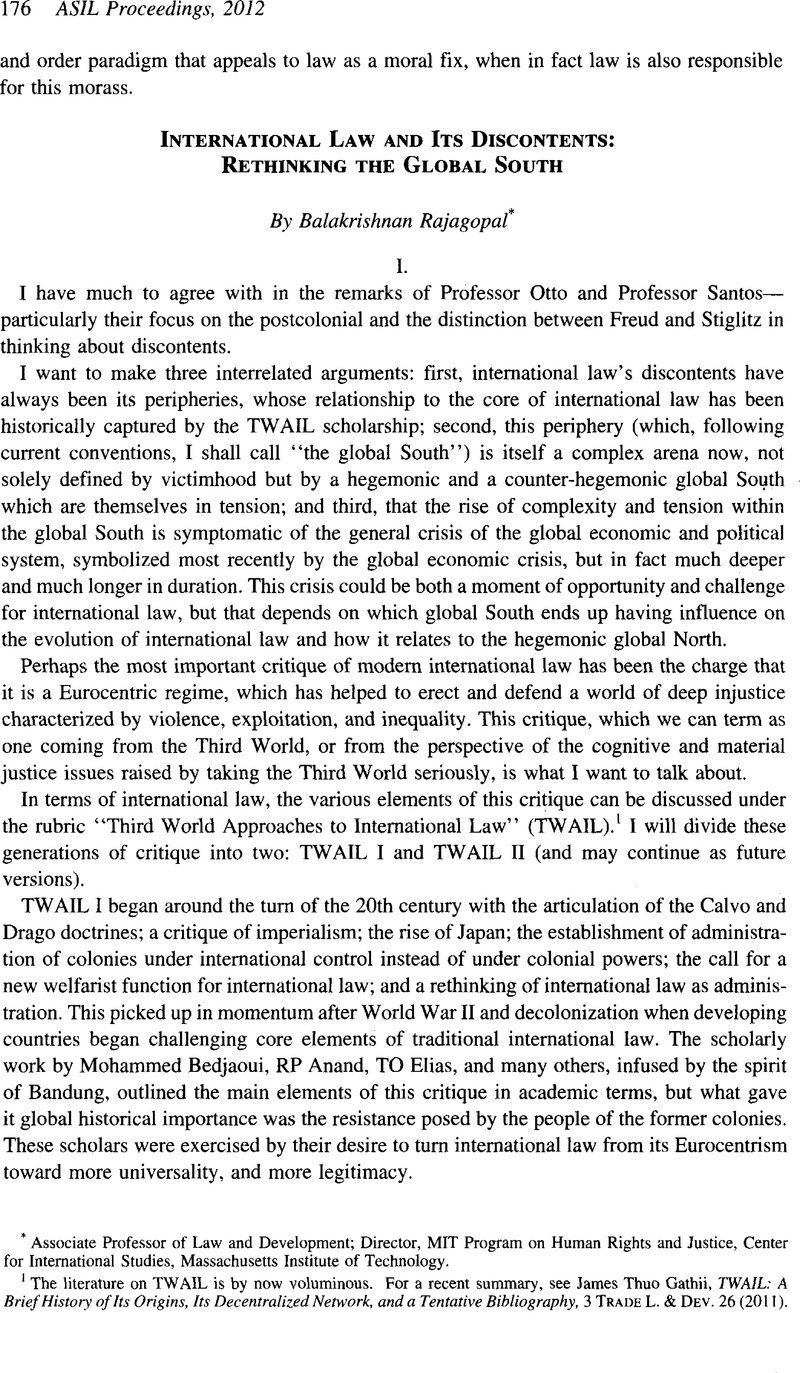Article contents
International Law and Its Discontents: The Normative Implications, and Strategic Opportunities, of Complexity
Published online by Cambridge University Press: 28 February 2017
Abstract

- Type
- International Law and its Discontents: The Normative Implications, and Strategic Opportunities, of Complexity
- Information
- Copyright
- Copyright © American Society of International Law 2012
References
1 The literature on TWAIL is by now voluminous. For a recent summary, see Gathii, James Thuo, TWAIL: A Brief History of its Origins, Its Decentralized Network, and a Tentative Bibliography, 3 Trade L. & Dev. 26 (2011)Google Scholar.
2 Available at http://www.bricsindia.in/thirdSummit.html.
3 Cited in Robert Zoellick, The End of the Third World? Modernizing Multilateralism for a Multipolar World, Speech given at the Woodrow Wilson Center for International Scholars (Apr. 14, 2010), available at http://web.worldbank.org/Wbsite/External/News/0,,contentMDK:22541126~pagePK:34370~piPK:42770~theSitePK:4607,00.html.
4 Joseph Schumpeter, Capitalism, Socialism and Democracy 82-85 (1975) (orig. pub. 1942).
5 Harvey, David, Neoliberalism as Creative Destruction, 610 Annals Am. Acad. Pol. & Soc Sci. 21–44 (2007)CrossRefGoogle Scholar.
6 Wallerstein, Immanuel, After Development and Globalization, What?, 83 Soc. Forces 1263 (2005)CrossRefGoogle Scholar.
- 6
- Cited by




